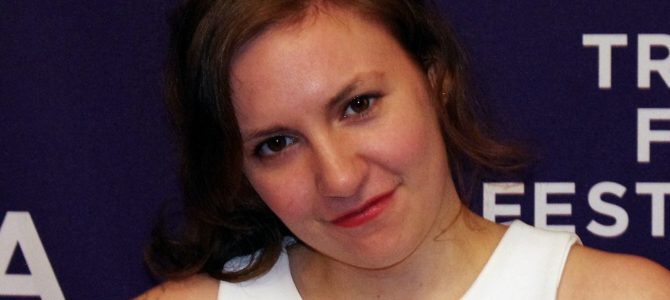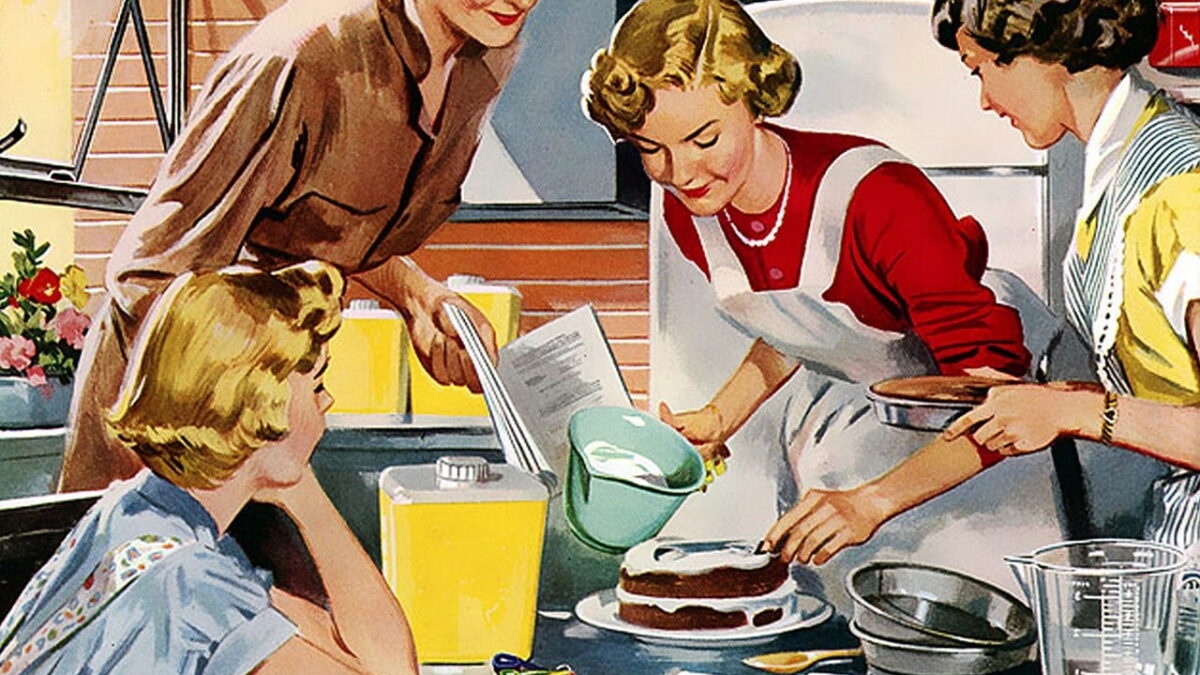
The facts of life are stubborn things. No matter how many times we try to modify or ignore them, there they are. It turns out to be true even if you’re rich, famous, or a progressive feminist in good standing. Just ask Lena Dunham and Jill Filipovic.
Dunham recently took to Vogue to discuss her hysterectomy at age 31 and foreclosing the possibility of ever bearing her own biological children. Meanwhile, Filipovic wrote on changing her mind about marriage for Cosmopolitan. For those who haven’t heard, Filipovic is now Mrs. McCormick (at least, traditionally speaking).
What was so striking about both personal essays wasn’t the content, per se. Marriage and motherhood are BIG things. They’re life changing things that countless people have reflected on in essays and book-length treatments. It’s also common for people to feel ambivalent about both of them, especially before taking either plunge.
No, what was fascinating was how both women — outspoken feminists, if ever there were — found themselves attracted by elements of the traditional life script seemingly at odds with Filipovic’s writings and Dunham’s public image.
Now to be fair, marriage and parenthood aren’t inherently partisan, but in today’s culture, both can feel politicized. Filipovic has tweeted and written in favor of child-free living. For her part, Dunham has described attending a wedding ceremony and finding it “patronizing, outdated, and terrifying.” So, presumably these women would agree they are both coloring outside certain feminist lines.
Each essay chronicles a seismic shift in the writer’s life. Filipovic, in particular, appears to struggle with her life-changing choice. Her discomfort with the institution of marriage is palpable. Filipovic explains, “my own cynicism, bolstered by feminist theory … put me squarely in the marriage-free camp throughout my 20s.” She watches women pair off before age 30 and considers them “child brides.” She watches women pair off after 30 and worries they are settling for the sake of stability.
Filipovic writes that not only did she not want to wed until same-sex marriage became legal (like Dunham), but she also worried marriage couldn’t be egalitarian and about the “perceived social and professional costs.” Still, Filipovic met her now-husband and everything began to look different.
I understand Filipovic’s general thought process. In college, I remember talking to friends about all the amazing professional things we would do after graduation. None of us wanted to get hitched until we were 30, which struck us as the perfect age.
That said, it’s one thing to have a goal and another to realize it. In my early 20s, dating involved a mixture of creeps and wonderful guys who simply weren’t right for me. Periodically, my father would buck me up after bad experiences with the reminder, “You only need one!” And, of course, he was right. When I met my now-husband, everything started falling into place. As Filipovic writes of her husband and I would have said after meeting mine, “life was brighter, better with him in the room.” The permanence of marriage went from scary to appealing.
But since Filipovic sees the world differently than I do, she adds, “I still think marriage is a sexist institution.” I disagree. I believe marriages are designed and defined by their two participants. I also don’t share Filipovic’s disappointment with women who change their last names post-wedding. I understand other women feel differently, but I always wanted to share my husband and children’s last name as a way to publicly acknowledge our being one family unit.
Given that I don’t identify as a feminist, I also don’t feel the need to say, as does Filipovic, “I also think there’s something positive, if not always feminist, about women choosing to honor their desires.” Rather, I say, go ahead and honor your desires, ladies. And if happiness looks like marriage to you, go forth and wed!
As for Dunham, maybe she will get married one day, since she’s long had her eye on the institution. But for the moment, the single Dunham is more focused on motherhood. She writes, “The fact is, I never had a single doubt about having children. Not one, since the day I could understand how families were made. And pregnancy was the glorious beginning of that vision.”
Two things about that. First, personally, I’d describe pregnancy as more of a mixed bag, but children are indeed glorious. Second, this admission surprised me, since it wasn’t so long ago that Dunham made headlines for wishing she’d had an abortion.
But, let’s let Dunham continue: “Later, wearing a prosthetic belly for my television show, I stroke it subconsciously with such natural ease that my best friend has to tell me I am creeping her out. … I feel the innate power of pregnancy, and I look forward to the moment when my stomach swells naturally …”
Unlike Filipovic’s essay, which is about her finding a happy ending, Dunham’s essay is about an ongoing journey down a rocky road. A woman who wants to be a mother can no longer have her own biological children, having endured an operation to end crippling chronic pain. Dunham writes, “Because I had to work so hard to have my pain acknowledged, there was no time to feel fear or grief. … I weep, big stupid sobs, alone in the bathtub or in the area where, in a terribly cliché turn, I have started crafting.”
That’s sad. It’s also not necessarily what you’d expect from a young woman whose “nurse from Staten Island … wonders aloud why I am so often nude on television.” A woman whose show’s finale inspired Slate to rank sex scenes by “how ‘Girls’” they were. Or the woman whose 2012 Obama ad aimed at first-time voters referenced a more personal first time.
And yet, Dunham closes her personal essay with several reflections, including, “Adoption is a thrilling truth I’ll pursue with all my might. But I wanted that stomach. I wanted to know what nine months of complete togetherness could feel like.” So, in spite of her hipster image, Dunham clearly has some traditional, maternal inclinations.
Somewhere, I suspect Margaret Thatcher is nodding knowingly, having wisely observed decades ago that the facts of life are conservative. And after reading this pair of personal essays by progressive feminists willingly embracing marriage and the path to motherhood, I couldn’t agree more.









